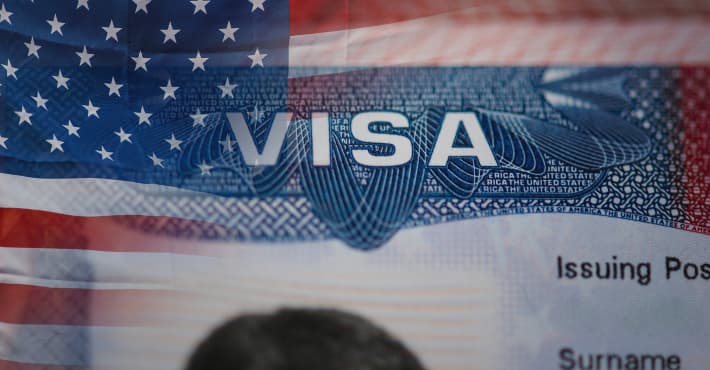

Deportation Ordered for Lawful Permanent Resident Mahmoud Khalil
In a highly consequential immigration decision, an immigration judge in Louisiana has ordered the deportation of Mahmoud Khalil, a lawful U.S. permanent resident, to Algeria or Syria. The ruling alleges that Khalil willfully misrepresented material facts during his green card application process, making him removable under current immigration law.
The court determined that Khalil failed to disclose relevant affiliations, including previous work for a United Nations agency connected to Palestinian refugees, which immigration authorities claimed was significant to his admissibility. The judge ruled that these omissions were not accidental but intentional and materially misleading.
Green Card Misrepresentation Allegations and Judicial Reasoning
The judge emphasized that the misrepresentations were not excusable as oversight. Instead, the ruling characterized Khalil’s omissions as calculated efforts to conceal associations that could have affected his eligibility for lawful status. Based on these findings, the court concluded that Khalil was inadmissible at the time of adjustment and is now subject to removal.
Further, the court declined to grant a discretionary waiver, citing the risk of incentivizing other applicants to engage in deception with the hope of receiving post-facto relief. The decision reflects a broader trend in immigration enforcement prioritizing strict accountability and a narrow view of discretionary leniency.
Federal Court Intervention Delays Enforcement
Despite the removal order, Khalil is not facing immediate deportation. A federal judge in New Jersey has issued an injunction that blocks the Department of Homeland Security from executing the removal or detaining Khalil while related litigation continues in civil court. This intervention underscores the role federal courts can play in checking immigration court decisions, particularly when constitutional claims are at issue.
The civil lawsuit raises First Amendment concerns, arguing that Khalil is being targeted for his pro-Palestinian political speech. His legal team contends that the removal proceedings are retaliatory and part of a broader pattern of political suppression through immigration law.
Constitutional Claims and Legal Strategy on Appeal
Khalil’s legal counsel plans to appeal the decision to the Board of Immigration Appeals and is pursuing parallel federal litigation. Central to their argument is that the judge misapplied the legal standard for material misrepresentation and failed to consider mitigating circumstances, including the humanitarian risks of deportation.
The defense is also asserting that the removal effort violates Khalil’s constitutional rights, particularly those protecting freedom of speech and association. These arguments raise profound legal questions about the limits of immigration enforcement when it intersects with political expression and public protest.
Risk of Return to Algeria or Syria and Humanitarian Concerns
Khalil was born in a Syrian refugee camp and also has family ties to Algeria. His attorneys argue that deportation to either country would expose him to serious risk, citing the high-profile nature of his case and his political activism. This aspect of the case could support additional legal protections, including withholding of removal or relief under the Convention Against Torture, though both forms of relief require a high evidentiary threshold.
This humanitarian dimension illustrates the often overlooked consequences of rigid immigration enforcement and the importance of individualized assessments in deportation proceedings.
The Role of Immigration Attorneys in High-Stakes Removal Cases
At Spar & Bernstein, we understand the complexity and urgency of cases involving allegations of misrepresentation, politicized enforcement, and removal to countries where clients face potential harm. In cases like Khalil’s, our immigration attorneys provide the full spectrum of legal services, including appeals, federal litigation coordination, waiver applications, country condition analysis, and constitutional defense.
We fight to ensure that due process is not sacrificed in the name of enforcement, and that every client is afforded the legal protections guaranteed under the law—no matter how complex or politically sensitive the case may be.
What This Case Means for Other Lawful Permanent Residents
The Khalil case serves as a powerful reminder that lawful status alone does not insulate immigrants from removal when allegations of misrepresentation arise. Even green card holders can face severe consequences, especially when cases are framed around national security or foreign policy interests.
At the same time, this case highlights how robust legal defense—particularly when supported by constitutional arguments and humanitarian concerns—can significantly influence outcomes. Federal court oversight, strategic appeals, and experienced advocacy are often the key to reversing or delaying unjust removal orders.
Spar & Bernstein Is Prepared to Defend Your Rights
Whether you are facing an immigration judge’s removal order, seeking protection from deportation, or challenging the government’s interpretation of your immigration history, Spar & Bernstein is ready to defend your case with urgency and experience. Our attorneys bring decades of combined expertise to every immigration matter, from high-profile constitutional challenges to everyday relief applications.
If you or someone you know is at risk of deportation due to alleged misrepresentation, politically motivated enforcement, or potential danger in your country of origin, contact our office today. We’re here to protect your future—because your rights deserve more than just a hearing. They deserve a legal team committed to winning.




